ブライアン・アンダーソン准教授[イリノイ大学デザイン学部]
http://www.studioba.org/
京都工芸繊維大学 KYOTO Design Lab
訪問研究員
期間|2019年6月―8月
アンダーソンは、イリノイ大学シカゴ校で教鞭を執るインダストリアル・デザイナーです。彼の作品は、製造の歴史、自然、構造への興味を探求し、工芸のような小さな規模から小さな工場の規模にまで至る。化学科学、伝統工芸、材料研究の技術的可能性から洞察を得た、創造的なデザインとその美学を探求している。
伝統的な・アナログ加工技術と先進的なデジタル加工技術を融合させ、素材をベースにした意味を考えたデザインを、メーカーとして検証する。革新的な形態、斬新な方法、そして新しい知識の方法を示す複合材料とを用いてデザイン作品は、新しい可能性を想像することに加え、伝統的なものへの畏敬の念を貫いている。
Assistant Professor Brian Anderson
School of Design
University of Illinois, Chicago
http://www.studioba.org/
KYOTO Design Lab, Kyoto Institute of Technology
Visiting Scholar
June – August, 2019
Anderson is an academic industrial designer based at the University of Illinois at Chicago. His work explore interests in the history, nature, and structure of making from the scale of artisans and craftsman to that of small factories. Informed by the chemical science, craft traditions, and technical possibilities of material inquiry, Anderson’s investigations explore the labor and aesthetics of creative production.
As a maker, he examines the craft of design, combining traditional and advanced fabrication techniques to consider material-based meaning in designed objects. Developed as innovative forms, novel methods, and hybrid materials that demonstrate new ways of knowing, his studio work is as insistent in its reverence for what has come before as it is on imagining new possibilities.
TRADITION AND TECHNOLOGY: SCALING UP
Across various contexts of consumption designers and artists are uniquely positioned to respond to and project optimistically, pragmatically, and experimentally from a range of societal concern and hope. SCALING UP responds experimentally, pragmatically, and optimistically to the general wastefulness of inherited production practices and to our limited ability as individuals and as a society to re-circulate what we don’t or can’t use.
Can digital fabrication facilitate on-demand design and manufacture utilizing minimal material at reasonable speeds and fidelities? Can design-driven development of materials and making connect communities of traditional and contemporary fabrication and material knowledge? Can bio-derived and bio-degradable materials be combined with industrial and domestic waste to create new materials people will welcome into their lives and homes?
Combining bio-plastic, paper pulp, and natural lacquer, and utilizing off-the-shelf and custom G-Code generation, SCALING UP is an investigation into furniture-scale fabrication of bio-derived 3D-printed objects. SCALING UP aims to demonstrate the viability of functional medium-scale composite systems constructed on digitally-fabricated scaffolds, and to materialize a novel intersection of tradition, craft, and production.
Project contributors:
KYOTO Design Lab Wood and Digital Factories (Tomohiro Inoue)
Emily Carr University (Material Matters)
Slab Corp.
Dr Kazunari Masutani (Neo Materia)
Hyobodo (a Kyoto-based urushi studio)
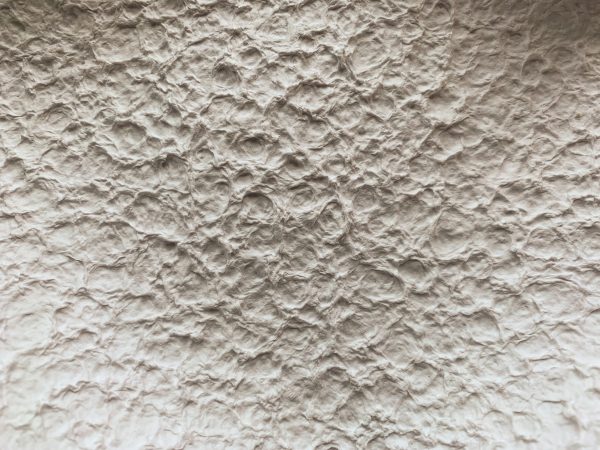
Pulp test|Sample tile for pulp testing and system confirmation (detail).
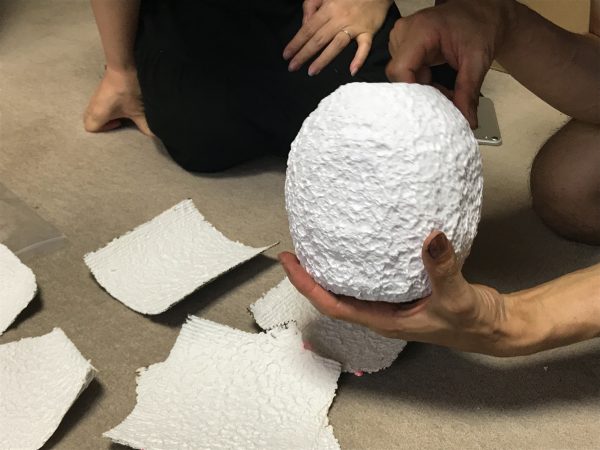
Hybodo|Project consultation with urushi artisans, Hyobodo.
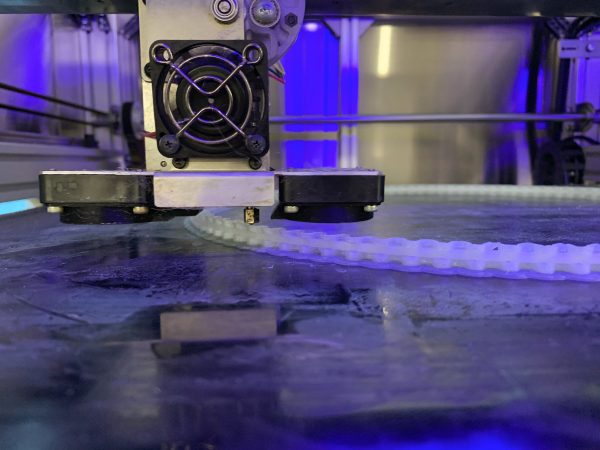
3d printer environment|Characterization printing on the S-Lab S3DP66A large format 3D printer in the KYOTO Design Lab Digital Factory.
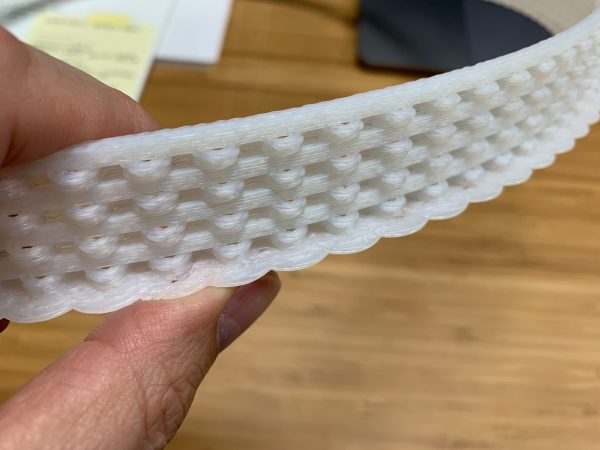
Mapping modeling to machine movement|Optimizing object geometry and print efficiency.
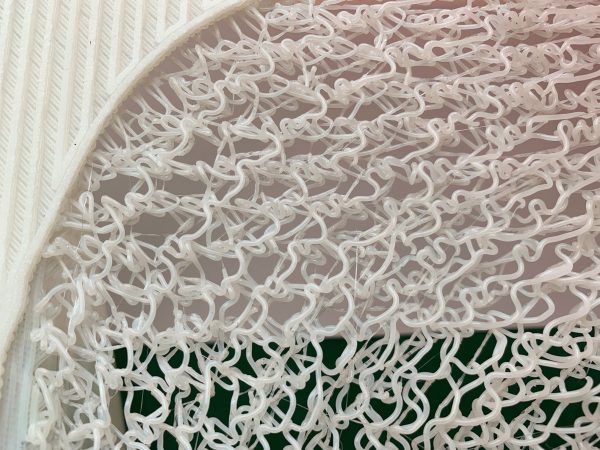
Large format printing test
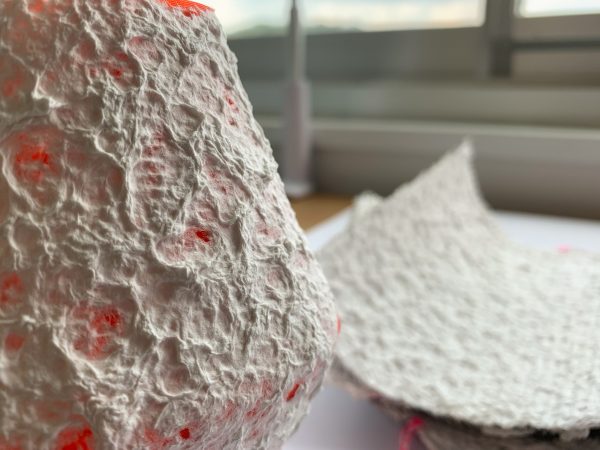
System test
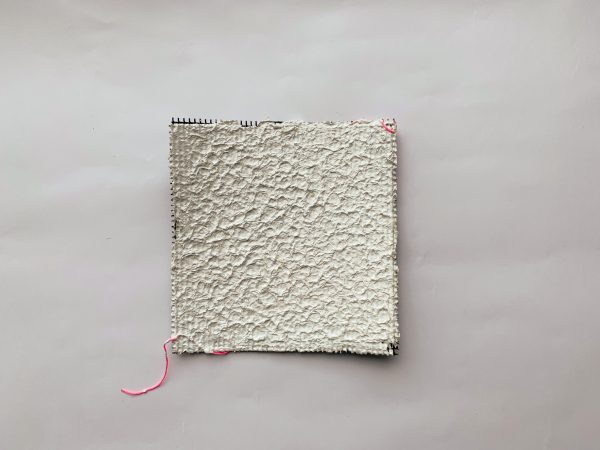
Pulp square

Large print test